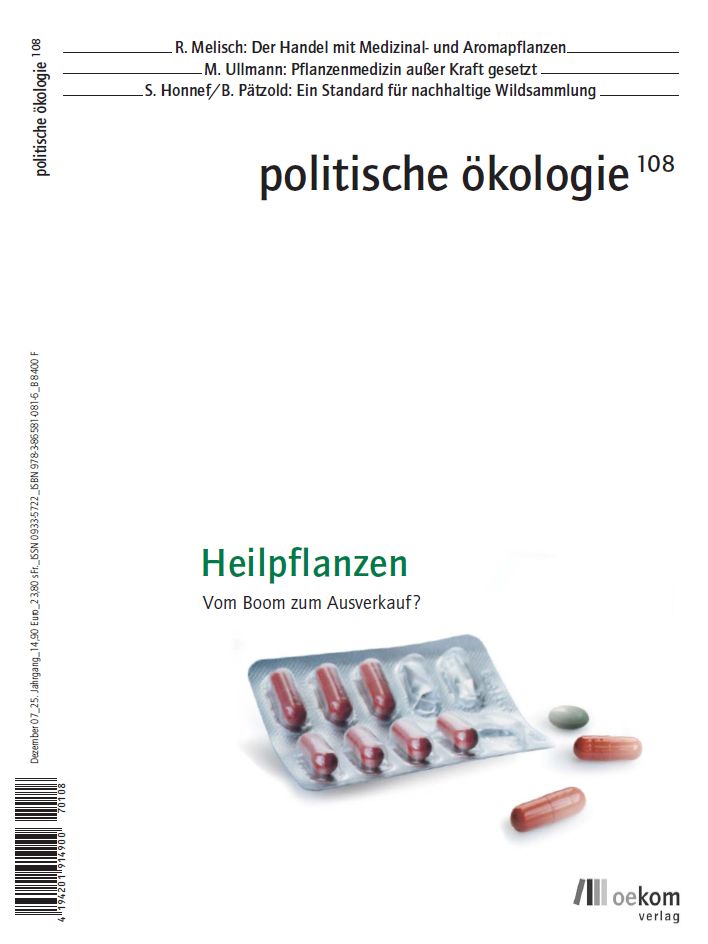Einer für alle. Globaler Nachhaltigkeitsstandard für natürliche Ressourcen
- Publication
- Citation
Schlegel, Stephanie and Timo Kaphengst 2007: “Einer für alle. Globaler Nachhaltigkeitsstandard für natürliche Ressourcen”. Politische Ökologie, Vol. 25, No. 108, 55-57.
The world's natural resources face increasing pressure due to rapid population and economic growth. Ensuring sustainable use of natural resources will require on the one hand a reduction in resource use, as well as strong, efficient and internationally valid standards. The current discussion on certification schemes for biofuels serves as a starting-point for the discussion regarding the possibilities and ways to extend a global sustainability standard with a broad coverage of natural resources. This article by Stephanie Schlegel and Timo Kaphengst outlines how a global sustainability standard for natural resources (NRS) can be designed.
The international discussions on the introduction of sustainability standards for bioenergy could be a promoter and a window of opportunity for the development of a respective Global Standard-Setting Scheme. Since globally grown bioenergy feedstocks cover a wide range of products which are not necessarily used exclusively for energy purposes, the discussion on standards for these products bears potentials for an even broader approach which would integrate a wide range of products derived from natural resources into one system.
This article outlines different options to design a standard-setting scheme. It outlines the strength and weaknesses of the two main possible approaches: the meta-standard approach or the development of a new generic standard, and describes different approaches to design the standard.
The development of this standard would depend heavily on the stakeholders involved in the process. It would particularly address civil society organisations and the private sector, but may also include intergovernmental organisations and governments.
Eventually, the standard can be implemented in different ways, such as a certification scheme, reporting obligations, a benchmark standard, voluntary guidance on good practice, agreements on rules for public procurement, regulation, intergovernmental agreements, codes of conduct or trade guidelines.
The article is available for download [pdf, 349 kB, German].





